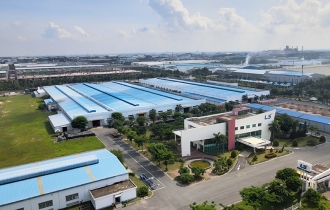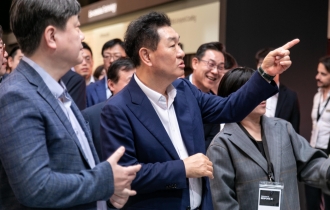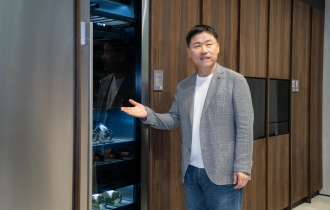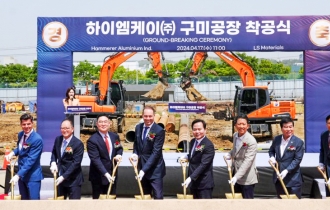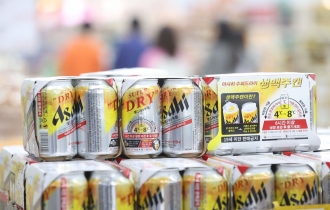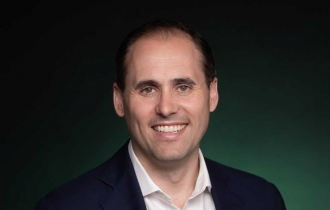Seoul eyes US$8m humanitarian aid to Pyongyang
[THE INVESTOR] The South Korean government said on Sept. 14 that it is reviewing providing US$8 million in humanitarian aid to North Korea via international organizations.
“The current administration’s basic stance is that humanitarian assistance to those who need a helping hand in North Korea should be continued regardless of political considerations,” a Unification Ministry official said on Sept. 14, adding that the aid program will specifically target North Korean infants and pregnant women.
“The government will decide on the specifics of the aid and timing after taking into account the inter-Korean situation,” he said.
A final decision is expected on Sept. 21, at a meeting presided over by the Unification Minister.
Out of the US$8 million, about US$4.5 million is envisioned to go to the United Nations Food Program while the rest would be managed by UNICEF for its vaccine and other healthcare programs. The ministry said that the UN organizations have been consistently asking for government permission to restart its relief programs.
The project, if realized, will mark the Moon Jae-in administration’s first state-backed humanitarian assistance to the North.
South Korea cut off all aid to the reclusive regime after it conducted its fourth nuclear weapons test in January last year. Its last provision of aid through global organizations was the United Nations Population Fund’s research project in December 2015, in which Seoul chipped in US$800,000.
President Moon had stressed at the Group of 20 summit in July that humanitarian assistance in the welfare and medical sectors should not be affected by political situations.
But the move to revive North Korean aid comes amid souring international sentiment against Pyongyang after it conducted its sixth nuclear test earlier this month. Earlier this week, the United Nations Security Council slapped yet another set of crippling sanctions on the North to cut-off its sources for nuclear and missile development program.
“We recognize the existence of varying opinions towards the government’s North Korea policy…But we will anyhow continue to allow civilian contact regarding humanitarian aid, review such projects with international organizations and pursue them under the social consensus here,” the Unification Ministry official said.
The Foreign Ministry said that the government explained its plan to the United States and Japan.
But Yonhap News Agency reported on Sept. 14 that Japanese Chief Cabinet Secretary Yoshihide Suga criticized Seoul, saying Seoul’s financial aid would only disturb international efforts.
“In a time like this when the North is continuing with its provocative actions, such as the Sept. 3 nuclear test, it shows that it is not time for dialogue but for the entire international society to put the biggest pressure against North Korea,” he said in a general briefing.
“The resolution that carries strict sanctions against the communist regime has also been adopted unanimously at the UN Security Council meeting. It is important to keep away from actions that can weaken the international efforts,” Suga said.
When asked if Japan is willing to discuss Seoul’s plan, he said he would not answer now as the plan is yet to be officially confirmed.
South Korean lawmakers also expressed concerns over the unification ministry’s decision.
The centrist People’s Party Chairman Ahn Cheol-soo said that, while he agrees with the need for humanitarian aids, he questioned the timing.
“We have to think carefully in proceeding with the aid project because the plan comes right after the North’s recent nuclear test, and that we are the biggest victim here,” he told reporters during his visit to North Jeolla Province, on Sept. 14.
A member of the parliamentary committee for foreign affairs and unification also said that the government’s stance can negatively influence the relationship with allies.
“Even if it is funding mothers and children in North Korea through international organizations, we should reconsider the choice. The international society gave consent to pressure the North, and South Korea should not be the one to nullify it,” Rep. Cheong Yang-seog of the minor opposition conservative Bareun Party said.
By Jung Min-kyung, Jo He-rim/The Korea Herald (mkjung@heraldcorp.com) (herim@heraldcorp.com)
EDITOR'S PICKS
- Samsung develops fastest DRAM chip optimzied for ondevice AI
- LS Eco Energy wins $30.51m supply deal to supply Denmark's Energinet
- Samsung CEO bets big on connectivity to take on Apple
- HD Hyundai signs W641b warship deal with Peru
- LG sets W1tr sales goal for built-in appliances by 2027
- LS Materials breaks ground on EV parts plant
- Beer imports from Japan more than double in Q1
- Mirae Asset Global X set for growth under new chief







